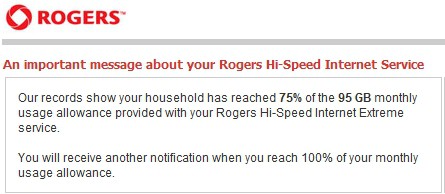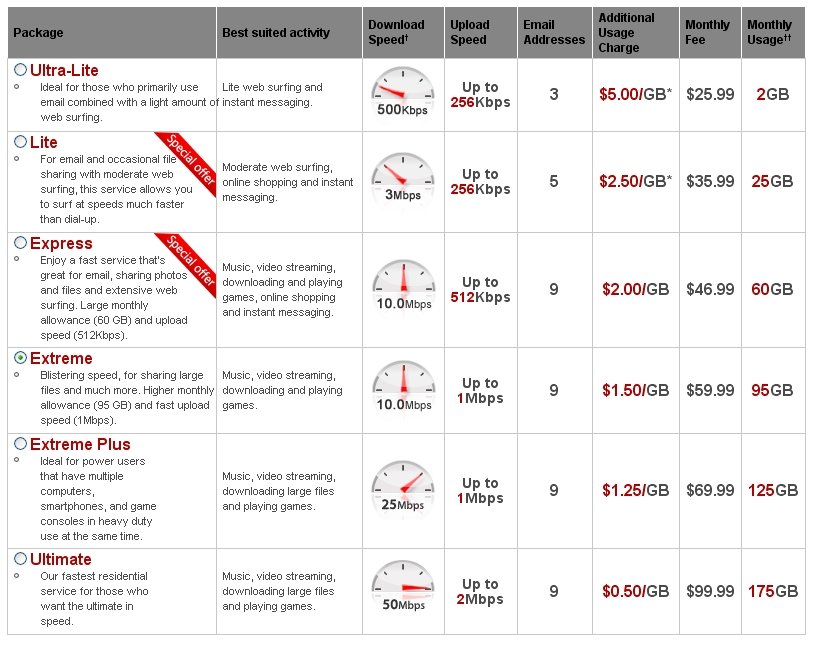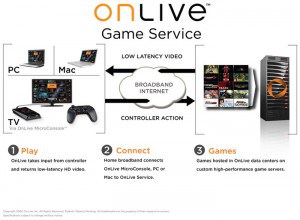 Just like the credit card companies, once a broadband provider wedges its foot in the door with Internet Overcharging schemes like consumption billing and usage allowances, they can push it open further and further, allowing your money to fly out the door into their pocket.
Just like the credit card companies, once a broadband provider wedges its foot in the door with Internet Overcharging schemes like consumption billing and usage allowances, they can push it open further and further, allowing your money to fly out the door into their pocket.
Rogers Communications, the dominant cable broadband provider in eastern Canada has quietly planned to double the maximum overlimit penalty customers pay for exceeding their usage allowance. Effective this March, Rogers will confiscate up to $50 from you for daring to cross their arbitrary allowances, which range from a piddly 2GB on their “Ultra-Lite” plan to 175GB on their $100 “Ultimate” plan. That’s double the old maximum penalty of $25 a month.
It appears many Canadian broadband customers simply took it for granted that unlimited broadband, regardless of the tier they selected, would cost an additional $25 a month. Many begrudgingly paid it, knowing in many areas all of the alternatives had Internet Overcharging schemes of their own.
As Stop the Cap! has warned repeatedly, once broadband providers establish such schemes, they can begin a limbo dance with their customers, reducing the value of the service they receive by either increasing the penalties for exceeding usage limits, or simply reducing usage allowances to expose more customers to profit-padding fees and surcharges.
Rogers is taking a page from companies like Time Warner Cable that wanted to implement their own Internet Overcharging scheme in April 2009 with a maximum overlimit penalty of $100. For broadband providers in Canada like Rogers who double such fees, there is plenty of room to grow them further.
Rogers charges customers trying to keep to a broadband budget some stunning overlimit fees as it is. Their Ultra-Lite plan exposes customers to a future bill up to $76.00 a month, all for 500kbps service, and that’s before taxes and surcharges. That’s because Rogers charges customers exceeding 2GB per month a whopping $5 for each additional gigabyte of usage.
Most Rogers customers end up on plans like “Express” which charges $46.99 a month for 10Mbps/512kbps service, with a 60GB usage allowance. But with Rogers’ new overlimit penalty fee, customers opening their bills could find that service costing them $97 a month instead. That’s a bill only a credit card company could love.
All this, when Rogers’ costs to provide broadband service continue to decline. Rationing broadband is profitable and and shareholders love it. Considering the regulatory agency that is supposed to watch out for Canadians, the Canadian Radio-television Telecommunications Commission (CRTC), more closely resembles a cable and telephone industry lobbying group, there is nothing to stand in the way of even greater fee increases in the future.
Oh, and they get to throttle your broadband speed down… way down, for any online application they feel consumes too many resources on their network, so customers can’t even use the service they pay good money to receive.
Nadir Mohamed, president and chief operating officer of Rogers Communications Inc., admits it’s all about the money. In June 2008, he told the Canadian Telecom Summit, “Usage-based billing is a reality for wired and wireless network,” he said. “The capacity is exploding, and we need to be able to monetize some of that.”
A person representing themselves as a Rogers social networking rep, “RogersMary” told customers Rogers had increased the value of their broadband service:
We always want to offer our customers great quality of service for the best value. In the last year, we have made network and technology investments that include improvements in download speeds, expanding our network in other parts of Canada and launching Rogers On Demand Online free to all customers that subscribe to any Rogers product. In terms of pricing, we have reduced higher tier services such as Extreme Plus ($69.99 from $99.95) and Ultimate ($99.99 from $149.99). Based on our research, the vast majority (90%) of Rogers Internet customers do not go over their usage limits each month and will not be impacted by changes to overage charges. If you do, I would suggest calling Care to discuss which plan best suits your Internet use.
If you call, ask Rogers which plan doesn’t include an Internet Overcharging scheme.


 Subscribe
Subscribe







